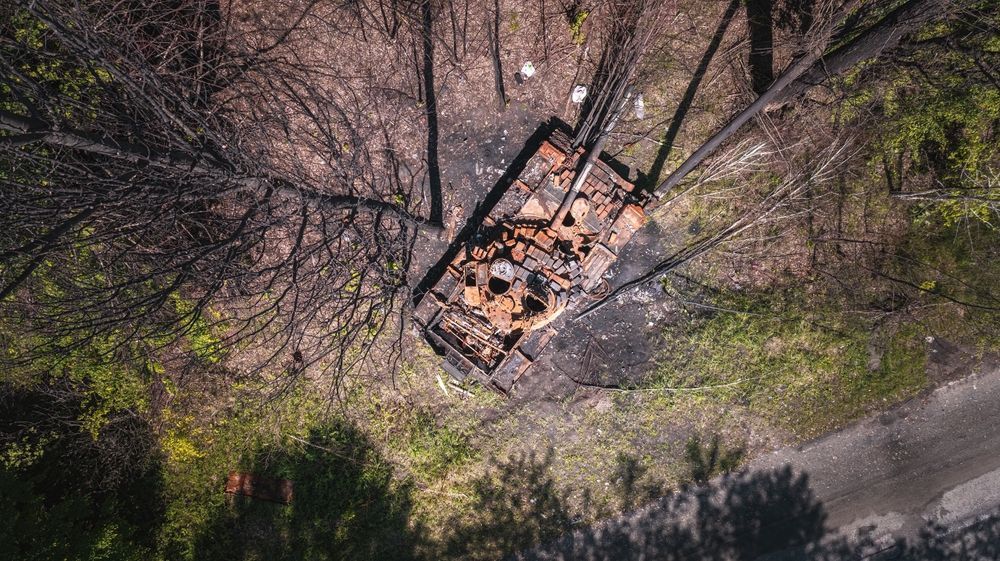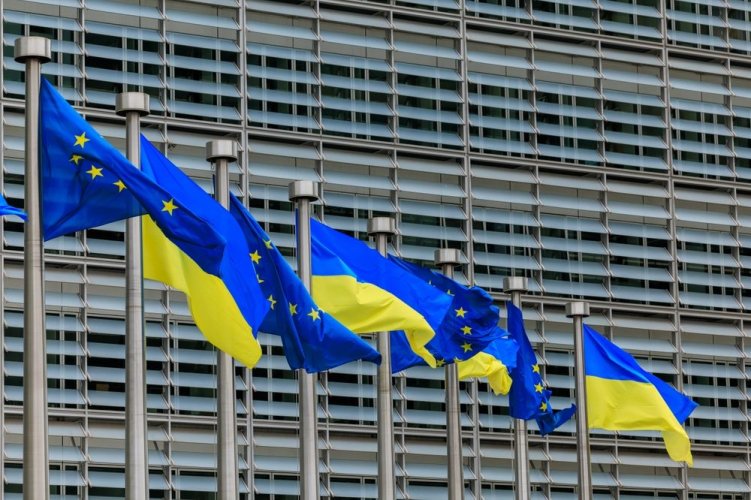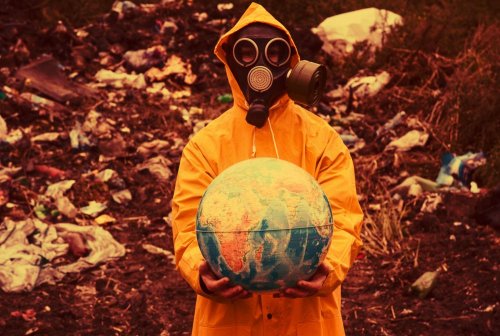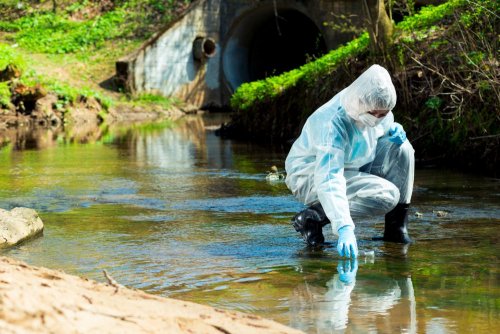In mid-September, the European Parliament approved its official resolution on Ukraine's progress toward EU membership. In it, parliamentarians assessed the European Commission's reports for 2023 and 2024 and examined the success of Ukraine's reforms, including those in the environmental sector.
EcoPolitic analyzed the document and will tell you what pros and cons European officials saw in the environmental policy of our country and what political signals it contains for the Ukrainian authorities.
What is this resolution?
The European Parliament's document in question is based on the European Commission's annual reports, which assess the implementation of the Copenhagen criteria, the standards that all EU candidate countries must adhere to. They determine whether a country is eligible to join the bloc.
The criteria stipulate that the applicant country has institutions to preserve democratic governance and human rights, a functioning market economy, and accepts the commitments and intentions of the European Union.
In this year's resolution, the European Parliament not only recognized Ukraine's progress, but also pointed out key areas where additional efforts are needed. These are:
- judicial system reform;
- combating corruption;
- protection of human rights;
- environmental policy and green recovery.
This resolution does not have legally binding force, but it is important in shaping the EU’s common political stance regarding Ukraine as a candidate country.
Ukraine’s steps forward
Here is a list of actions by the Ukrainian authorities that gained approval from members of the European Parliament:
-
Adoption of legislation in the field of renewable energy and aligning its policy with the objectives of the European Green Deal.
-
Ukraine’s approval of the National Energy and Climate Plan, as well as the coordination and planning of energy and climate policy up to 2030, with specific goals including significant reductions in greenhouse gas emissions and an increased share of renewable energy sources.
-
Establishment and operation of the Energy Efficiency Fund and the Decarbonization Fund.
-
Expansion of the staff of the Specialized Environmental Prosecutor’s Office within the Prosecutor General’s Office.
Ukraine’s steps back
Here is a list of “warning signs” highlighted by the European Parliament:
-
Foreign investors and transnational corporations have significantly expanded their control over Ukraine’s natural resources. This influence extends in particular to agricultural land, mineral resources, and critical infrastructure. It may undermine national sovereignty, food security, and economic self-determination.
-
Ukraine is not effectively combating illegal logging, particularly illegal logging in the old-growth forests of the Carpathians. Separately, members of parliament called on the EU to help prevent illegal logging of the Svydivets mountain massif. They described the project for the eponymous ski resort, which they plan to build here, as illegal.
-
The European parliamentarians explicitly stated that the controversial bill No. 12089 “On amendments to the Civil Code of Ukraine to strengthen the protection of the rights of bona fide acquirers”, which upon adoption by the Verkhovna Rada received No. 4292-IX, does not comply with the EU acquis.
According to officials, the law in its current form allows for the legalization of private ownership of land illegally withdrawn from state ownership, including forests and water bodies. It contains legal ambiguities that make it impossible to return such land to the state, the EU parliamentarians said. The officials called on the Verkhovna Rada and the government to amend the document.

To-do list for Ukrainian officials
European parliamentarians urged Ukraine to:
-
Accelerate the implementation of renewable energy sources (RES) and energy efficiency measures, use recovery for better reconstruction, apply the most climate-friendly technologies and processes where possible, invest in renewables and energy efficiency, and also minimize environmental impact throughout the entire production chain.
-
Use funds within the framework of the Ukraine Facility to prioritize investments in renewables.
-
Continue to develop anti-corruption policy in the field of natural resource management.
How partners should help
The European parliamentarians called on the EU, its member states, and the European Commission within their respective competencies to:
-
Support a comprehensive environmental restoration strategy within the reconstruction of Ukraine.
-
Provide full support to all initiatives documenting the environmental destruction caused by russia’s war, and “support efforts” (whatever that may mean) for prosecution and compensation in foreign jurisdictions.
-
Ensure the financial viability of the Energy Efficiency Fund and the Decarbonization Fund, particularly in the context of reconstruction and integration of renewables in the housing sector.
-
Include nuclear safety as a central component of Ukraine’s recovery strategy and integration into the EU, ensure alignment with EU legislation in the field of nuclear energy and radiation protection, and provide Ukraine with technical and financial assistance from the EU and international partners to strengthen nuclear safety.
-
To help Ukraine achieve the sufficiency of its Emerald Network for nature conservation purposes.
-
To support Ukraine in implementing environmental impact assessment (EIA) procedures, particularly in the forestry and agricultural sectors, as well as strategic environmental assessment (SEA) procedures.
-
To support Ukraine in building administrative capacity for the full implementation of the EU environmental acquis, engaging the public in decision-making processes, and aligning Ukrainian legislation with the Renewable Energy Directive, specifically with the sustainability criteria for bioenergy.
There are significant problems with the implementation of the last three points in our country. Instead of building “administrative capacity,” we are witnessing the direct opposite, as the government is eliminating the relevant ministry.
Efforts are also being made at various levels to exclude the public from participating in environmental decision-making. The most recent example: a broad campaign of discreditation and harassment has been launched against activists trying to protect valuable Carpathian ecosystems from destruction for the sake of wind power plant construction.
In addition, like mushrooms after rain, legislative initiatives appear that aim to restrict EIA and SEA procedures in various ways.
Important accents of the resolution
Recognition of ecocide
The MEPs explicitly called the aggressive war unleashed by Russia an ecocide. They recognized that the environmental damage caused by the occupiers had devastating consequences for Ukraine's natural resources, critical ecosystems, and the health, livelihoods, and safety of the population.
EU officials believe that "green recovery" should include compensation for this damage and Ukraine's transition to environmental and social sustainability, in line with EU acquis environmental legislation.

Society as a pillar of the country
According to EU lawmakers, civil society remains a pillar of stability and democracy in Ukraine. The parliamentarians also believe that the recent sharp reduction in US funding has had devastating consequences for it.
Use of natural resources
The European Parliament considers it extremely important that the extraction of minerals under the US-Ukraine Economic Partnership Agreement on Critical Minerals fully complies with high social and environmental standards, and that compliance with these standards is ensured through robust control mechanisms.
The EU legislature expects Ukraine to fully incorporate the relevant EU environmental legislation, in particular the Water Framework Directive and the Mining Waste Management Directive, into its national legal framework.
The EU parliamentarians reminded that EU enlargement should ensure that accession does not lead to the exploitation of natural resources of candidate countries and does not contribute to social inequality and environmental degradation.





